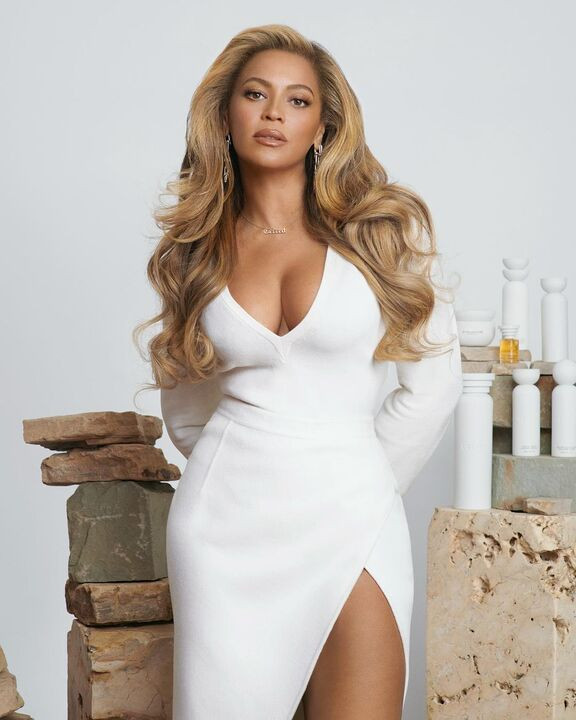
During her glorious three decades of fame, Beyoncé has garnered many titles—singer, actress, philanthropist, trendsetter, and one of the greatest performers of our time. Above all else, she's a proud, history-making Black woman. Most recently, the legendary superstar added a new title to her legacy— beauty founder—with the launch of her long-awaited haircare line, Cécred.
Created for all hair types, Beyoncé, who is the daughter of a salon owner, founded the brand on her innate love for her natural hair. Despite the beauty brand drawing mixed reviews from editors and influencers since its launch in February, Cécred's results-driven products sell out in hours. And yet Beyoncé is still faced with the same question people have asked for years — is that all her hair?
Known for her exclusivity and very few words on social media, Beyoncé showed her wash day routine on Instagram as her longtime stylist Neal Farinah nourished her long, gorgeous blonde curls. "It has been such a special experience seeing all of your #cecredwashday rituals all over my timeline... I just had to join in with something I had in the archives," the songstress wrote. "Being disruptive and challenging everything people feel should be the process has always been exciting to me. My hair and music seemed to do that a lot over the years... It's the hardest to keep color-treated hair healthy and strong, but @cecred is here. All quality, with NO shortcuts."
While many fans marveled at the icon's natural mane that showed roots and all, it brought awareness to the issue that I've noticed all my life as a Black woman; the stigma against natural hair. As a young girl with thick natural hair like Beyoncé, I was always on the receiving end of various questions that challenged the validity of my tresses. "Is that all your hair?" or "Do you have extensions in?" I never thought much of it until I got to my teenage years and finally realized that the world had a problem with Black women having naturally long hair.
The innovation of Garrett A. Morgan's hair relaxer quickly became a coping mechanism with the unrealistic beauty standards that our community was measured by. If we wanted to feel accepted in the workplace or any other environment, we were quick to hide our real texture through straightening with hopes of fitting in. And sometimes, that still wasn't enough. Through Beyoncé's experience, it seems that society's issue with a Black woman's hair is still prevalent, but when will it end? If God created me with remarkably beautiful hair why can't you see it? Why do I constantly have to prove it?
Although disruptors like Beyoncé have helped young girls like myself to become unapologetically secure with our beauty, the sobering reality is that a Black woman's flourishing hair is threatening. The day that we nor our hair are no longer seen as errant, is the day we are really free. Whether that day comes or not, our hair has been and always will be Cécred.
© Copyright Fashion Times 2024. All rights reserved.









